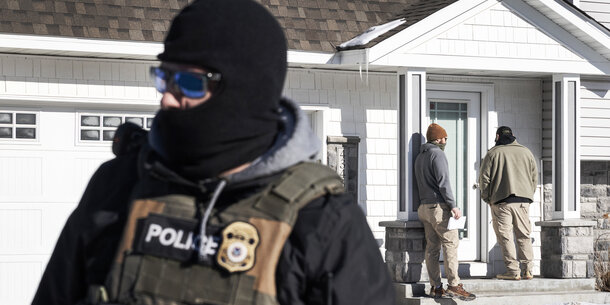On February 4, 2020, the Brennan Center and Defending Rights & Dissent (DRAD) filed a federal lawsuit in New York against the Federal Bureau of Investigation (FBI) for failing to provide information under the Freedom of Information Act (FOIA). The Brennan Center and DRAD submitted their FOIA request on May 6, 2019, requesting documents relating to the FBI’s Foreign Influence Task Force (FITF).
FBI Director Christopher Wray established the FITF in the fall of 2017 to “identify and counteract malign foreign influence operations targeting the United States”; the role of the task force has included facilitating collaboration between the FBI and social media and technology companies in an ostensible effort to combat the spread of disinformation. The head of the FITF reportedly stepped down in July 2018, and few details about the activities of the FITF have been publicly available beyond information published on the FBI’s webpage the following month. For example, Facebook’s removal of 32 pages and accounts, including the decision to remove the event page for the anti-racist rally, “No Unite the Right 2-DC,” drew criticism, but Director Wray declined to comment on the FBI’s involvement in this removal.
Making information about the FITF’s existing activities public is important in order to ensure that the FBI is not impinging on constitutionally protected activities on social media. And the timely provision of the requested information is critical, as there is a reasonable expectation that foreign adversaries will try to influence the 2020 elections, given their prior attempts to do so in 2016.
After the Brennan Center and DRAD submitted the initial FOIA request, the FBI responded twice regarding the request for a fee waiver but did not refer to the substance of the FOIA request. On October 3, 2019, almost five months after the original request was submitted, the Brennan Center asked for a status update from the FBI. The next day, the FBI responded with a vague timeline, estimating a completion date sometime in mid-2022, 1,432 days after the May 2019 request.
The Brennan Center and DRAD submitted an administrative appeal on December 18, 2019, challenging the FBI’s inaction and failure to fulfill the FOIA request in a timely manner. The FBI did not respond to this appeal within the 20-day window required by the statute. On January 21, 2020, the Department of Justice’s Office of Information Policy (DOJ OIP) sent an email to the Brennan Center and DRAD, claiming that the large volume of information requested justified the extended timeline. DOJ OIP further wrote that there was no need for expedited processing because the original request failed to show why such information would impact the public’s confidence in the government. DOJ OIP then reiterated that the FBI was processing the request, but again failed to give a specific timeline.
The parties determined that the FBI’s failure to substantively address their request or their concerns regarding timing constituted an effective rejection of the appeal. Because their administrative options are now exhausted, the Brennan Center and DRAD have filed this lawsuit to make public this deeply relevant information.
Read the Original Request
Read the May 22, 2019 and July 3, 2019 FBI correspondences
Read the October 3, 2019 FBI response
Read the Administrative Appeal
Read the January 21, 2020 DOJ OIP response
Read the Brennan Center and DRAD’s complaint
The Brennan Center and DRAD are represented on this matter pro bono by Frank Nolan, Andrea Gordon, Caren Pinzur, and Jessica Rodgers at Eversheds Sutherland, LLP.

